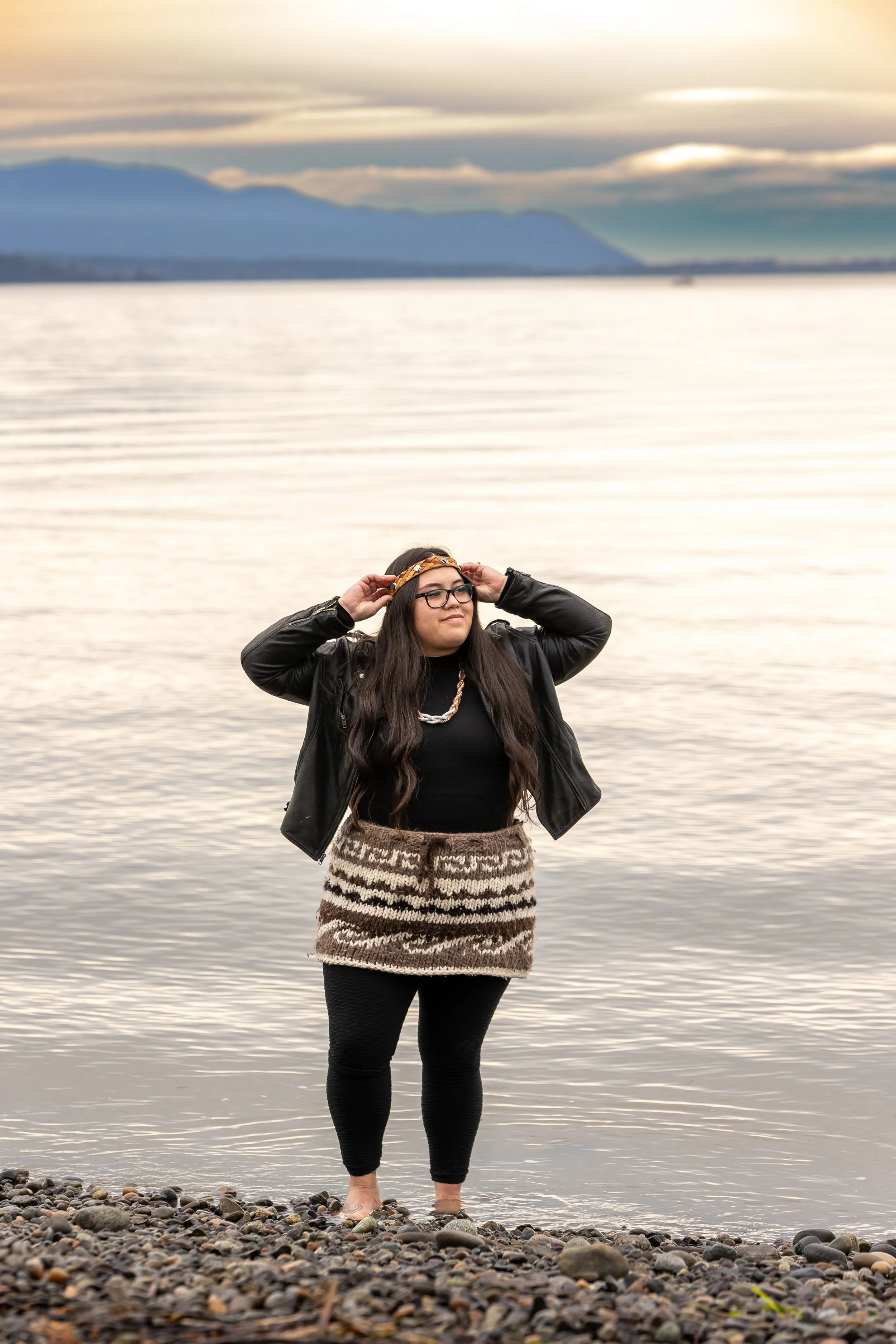West Shore is an 18-minute documentary film that follows the West Short Canoe Family as they paddle through their ancestral waters and connect with relatives during the 2023 Paddle to Muckleshoot. Tribes from Washington, Oregon, British Columbia, Alaska and California come together in potlatch and share in a cultural exchange of food, song, dance, generosity and medicine. The film is a celebration of Indigenous Coastal culture, and shows how the annual Tribal Journeys events play an integral role in community, wellness and tribal resurgence today.This film's all about getting Native youth involved in the canoe journey—it's a way to connect with culture and find healing. It shows how culture can be a powerful tool for preventing risks like mental and physical health struggles, substance abuse, and even discrimination. It’s about stepping into your identity, understanding each other, and lifting one another up.
West Shore breaks it down, making it clear what the Tribal Canoe Journey means for Indigenous communities and youth, but it doesn’t stop there. It gives everyone, no matter where they come from, a chance to learn, reflect, and understand. It’s culture as a path to wellness for all.FILM CREW
CHARACTERS

Film synopsis
Imagine this: you’re on the edge of the Pacific Northwest—mountains rise up from the water, mist rolls off the coast, and the only sound you hear is the rhythmic splash of paddles. West Shore takes you on a journey like no other, following a group of modern-day adventurers who set out to reclaim an ancient tradition—paddling the same waters once navigated by Indigenous peoples who’ve lived here for thousands of years.This isn’t just about paddling—it's about reconnecting to something much deeper. As our crew of paddlers maneuvers through the fog and tides, they dive into the cultural and spiritual significance of the canoe. We’re talking about a vessel that’s been used for centuries by the Coast Salish, Haida, Nuu-chah-nulth, and other Indigenous groups to travel, trade, and, yes, survive. It’s a living link to history, and in West Shore, that history is more than just a story—it’s something people are actively living and honoring in real time.You’ll see it all: the carving of a dugout canoe, the brutal workout that comes with paddling through the unpredictable waters, and the way teamwork and tradition mesh to create something powerful. Along the way, we hear from elders, environmentalists, and activists, exploring how the journey isn’t just physical—it's a statement about resilience, environmental stewardship, and cultural preservation. These waterways are a lifeline, and the movie doesn’t shy away from reminding us that, hey, we need to protect them.West Shore is not just a film; it's a reflection on what it means to belong to a place, to carry the weight of tradition, and to paddle forward into the future while honoring the past. So grab your paddle (or just sit back) and experience the untold beauty, strength, and spirit of the Pacific Northwest like never before.The water was our Ancestor's highway. Their form of transportation was the canoe… but that was almost stripped…
To be around your canoe family… It becomes your safe haven… Your safe space…“The way we’re told is, those canoes were meant to bring our people together. They’re there for a lot of healing.”“I’m really grateful for how things have changed now we look around and kids are proud to be who they are and where they come from. They’re proud to sing and dance. And that’s something I’d never want them to be ashamed of. What our Ancestors did and what we’re doing today…. We’re on the same track. What we do today will safeguard our families for tomorrow.” - Antone George (Cee-lam-tum)























